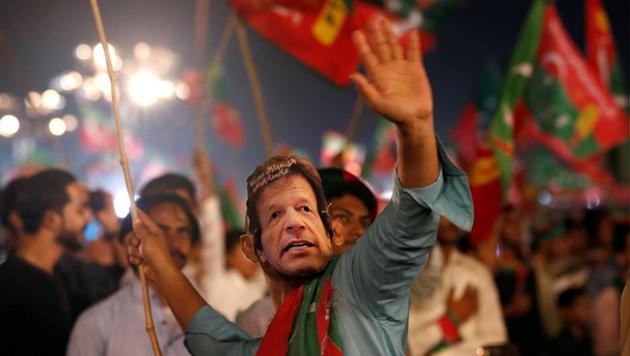Pakistan needs a strong and independent civilian government
The campaign in Pakistan seems designed to clear a path for ex-cricketer Imran Khan’s party and other candidates equally sympathetic to the military’s priorities, including some known Islamic extremists.
Yet again, Pakistan’s army seems intent on determining the outcome of national elections, which are to be held on Wednesday. Unfortunately, that means the polls almost certainly won’t deliver the strong and independent civilian government Pakistan needs.

Even for a country accustomed to military interference in politics, the current campaign stands out. Candidates from the former ruling party, led by three-time Prime Minister Nawaz Sharif, say they’ve been pressured to switch loyalties or be hauled up on corruption charges. Sharif himself was forced to step down for allegedly violating an obscure clause in the constitution, then was convicted on flimsy corruption charges and sentenced to 10 years in prison. Members of the press have been harassed and threatened; one critic of the military was abducted in Lahore. (The army denies any involvement with press harassment or election interference.) The campaign seems designed to clear a path for ex-cricketer Imran Khan’s party and other candidates equally sympathetic to the military’s priorities, including some known Islamic extremists.
Khan denies having the military’s backing. But if he wins after all the hijinks, he’ll inevitably face doubts about his legitimacy. And whoever takes charge will confront a dire economic situation.
The Pakistani rupee has lost almost 14% of its value this year. Foreign exchange reserves are running short. The central bank, alarmed by the country’s $18 billion current account deficit, has hiked interest rates and restricted the import of more than 130 items. The country’s external debt and liabilities have risen to 31% of GDP, the highest in six years, and its credit rating has been downgraded to negative. The new government will most likely need to approach the International Monetary Fund for a bailout, less than two years after an earlier emergency infusion of $6.6 billion was paid back.
Pakistan has needed a dozen such bailouts over the past three decades, as every short-term effort at economic reform has given way to more profligate spending. Imports are up now in part because of machinery brought in to build China’s Belt-and-Road projects in Pakistan. Meanwhile, export industries have been shrinking to the point where they now account for barely 7% of GDP — about one-fourth the average for developing Asia.
The trouble is that every new government, often within a year or two, tends to run into political difficulties seemingly engineered by the military. (The regime of former military dictator Pervez Musharraf was an exception.) The generals turned on Sharif three times — most recently, it seems, because he tried to improve ties and trade with India and challenged the coddling of Islamic militant groups. For a civilian government to normalise relations with Pakistan’s giant neighbour would infringe on the army’s dominance of foreign and security affairs; declining tensions would challenge its vast claims on state resources.
But if Pakistan is to escape its boom-and-bust cycles, it needs a civilian government strong enough to focus not on its own political survival, but on the long-term needs of the economy. The government has to invest in the health and education of the workforce to boost productivity, and enact tough structural reforms to make the export sector more competitive. Pakistan’s economy has to be opened up to reduce rent-seeking and to make it easier to do business. And to attract the foreign investment the country needs, the government is going to have to shed all support for militants.
China has stepped up its aid. In just the past fiscal year, it’s extended Pakistan an additional $5 billion in loans. But China’s largesse isn’t unlimited. Ultimately, only Pakistan’s civilian leaders can solve the country’s problems. The generals should stop making their job harder.



